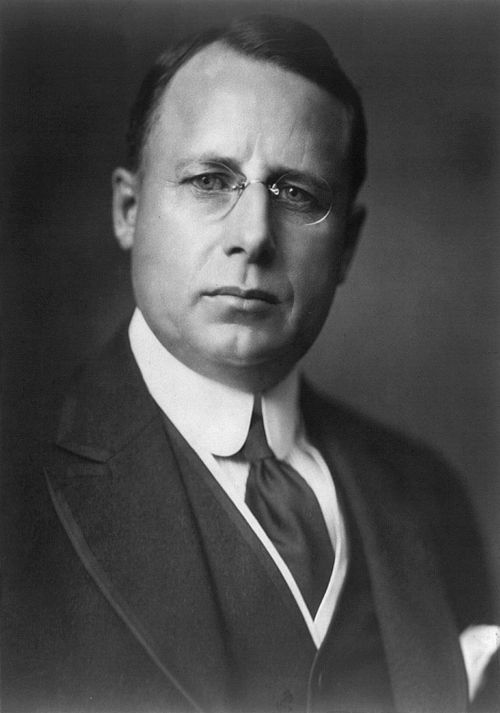James M. Cox
James M. Cox was an American politician who served as the twenty-seventh Chancellor of America from 1926 to 1930. Cox won the Selection of Chancellor after a very contentious election, in which he secured the necessary electoral votes by appointing one of his opponents, Unionist Charles Dawes as Premier of the Senate. Cox and Dawes shared much of the ideology in terms of foreign policy, particularly with the Empire of Japan, whereas the Libertarian Party under Burton Wheeler focused on isolationism and domestic issues.
Chancellor Cox attempted to govern in the same manner as Hughes, who was leaned upon heavily by King James I. James did attempt to have his own beliefs, though they aligned much with Cox's ideas, which came off as being under Cox's influence.
Among his domestic policies, Cox attempted to ban the teaching of many foreign languages, particularly French following the Montreal Riots. He also attempted to champion anti-Catholicism as a result, trying to tie the language and religion to the Comintern Union. Cox believed embracing English and Protestantism would Americanize immigrants and make a unified national identity. Many of these policies lost him support within the territories of Rio Grande and Yucatan, both of which had a high percentage of Catholic Spanish speakers.
Cox was Chancellor during the Chiapas War, of which he clashed with the intentions of King James. James wished to find a mediation solution to curve Antonio of Catrachia. However, Cox remained undetered, believing the smaller state could not sustain itself against the Republic of Mexico and have it come back under American influence. Catrachia emerged victorious, and any notion of sole American dominance in Central America was erased. This became a disaster for Cox's administration.
Despite to the numerous controversies, Cox was still nominated for the Selection of Chancellor. However, it became clear that he would not succeed, he dropped out of the race, being succeeded for the Whig Party nomination by his Secretary of State, Frank B. Kellogg.
Social
Reign
Preceded by: Charles Evans Hughes
Succeeded by: Frank B. Kellogg




Comments